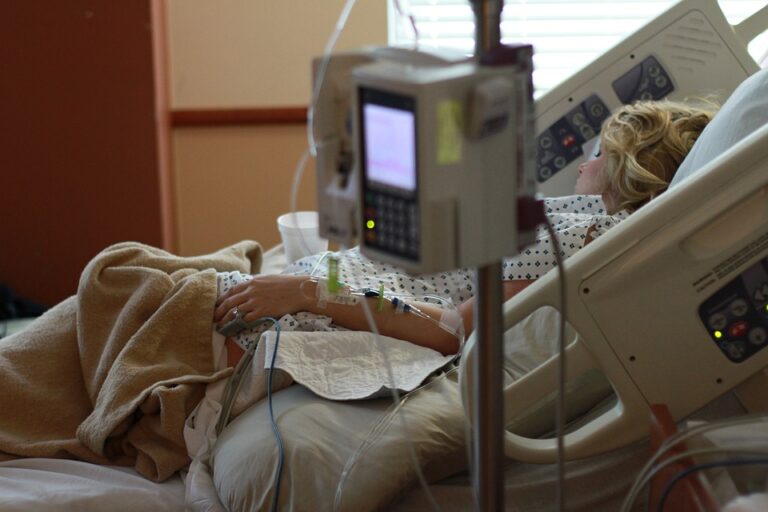
Maternal Health Crisis: Addressing the Alarming Rise in Maternal Mortality Rates
When discussing global health issues, one cannot ignore the alarming rise in maternal mortality rates. Despite significant strides in medical advancements and improved healthcare systems, numerous countries continue to face a maternal health crisis, which poses a threat to the lives of pregnant women and their babies.
Maternal mortality refers to the death of a woman during pregnancy, childbirth, or within 42 days of giving birth. According to the World Health Organization (WHO), approximately 830 women die daily from preventable causes related to pregnancy and childbirth. Shockingly, 94% of these deaths occur in low and middle-income countries, highlighting the vast disparities in healthcare systems across the globe.
Several factors contribute to the rise in maternal mortality rates. Firstly, inadequate access to quality healthcare services significantly affects maternal outcomes. Many pregnant women in developing countries lack access to prenatal care, skilled birth attendants, emergency obstetric care, and postnatal care. Limited availability of essential medical supplies, including clean birthing facilities, blood transfusions, and antibiotics, further hampers the chances of a safe delivery.
Furthermore, societal and cultural norms often put pregnant women at risk. Early marriage, adolescent pregnancies, and lack of education prevent women from making informed decisions regarding their reproductive health. In many communities, women have limited decision-making power and face significant barriers to seeking healthcare services due to gender discrimination and cultural taboos.
Another crucial aspect that contributes to the maternal health crisis is the lack of healthcare infrastructure and human resources. Many low-income countries struggle with a shortage of trained healthcare workers, including midwives, nurses, and doctors. Insufficient numbers of healthcare professionals mean that pregnant women cannot receive essential interventions and life-saving treatments in a timely manner, increasing the risk of complications and death.
To combat this crisis and reduce maternal mortality rates, concerted efforts are required globally. Investing in healthcare systems is of paramount importance, particularly in low-income countries. Increased funding allocated towards improving infrastructure, training healthcare professionals, and expanding primary healthcare services will provide pregnant women with the necessary support and medical assistance they deserve.
Moreover, it is essential to prioritize and promote gender equality and women’s empowerment. Educating young girls on reproductive health, increasing the availability of contraception, and reducing early marriages will enable women to have greater control over their own bodies and make informed choices about their reproductive health.
Furthermore, strong government policies, regulations, and accountability mechanisms are crucial in addressing the maternal health crisis. Governments must enact legislation that guarantees universal access to quality healthcare during pregnancy, childbirth, and postpartum periods. Strengthening health systems, improving data collection, and monitoring maternal health outcomes are also essential to identify areas that require immediate attention and intervention.
International collaboration and partnerships are also integral to addressing the global maternal health crisis. Transferring knowledge, technology, and resources from high-income countries to those in need can significantly improve maternal health outcomes. Initiatives such as the United Nations’ Sustainable Development Goals (SDGs), particularly Goal 3, which focuses on ensuring healthy lives and promoting well-being for all at all ages, provide a framework for global efforts to reduce maternal mortality rates.
In conclusion, the alarming rise in maternal mortality rates is a critical global health issue that demands urgent attention. By investing in healthcare systems, promoting women’s empowerment, strengthening policy frameworks, and fostering global partnerships, we can make a significant difference in reducing the maternal health crisis. Every woman has the right to a safe and healthy pregnancy, and it is our collective responsibility to ensure that this becomes a reality for every woman, regardless of where she lives.
Younger Glowing Skin - Discover Ancient Ayurvedic Secrets at DoctorIndiaHerbals.com
Explore One of the Largest Collections of Dinosaur-Themed Toys, Games, Gifts, Decor, and More at DinoAvenue.com
Discover Premium Design Elevator Shoes for Men and Women at LondonCobblers.com
Discover Hidden Family Destinations for Vacations at Places.Travelz.io
Find the Best Deals on Airfare and Hotels with Advanced Metasearch Technology at www.Travelz.io
30% off on Kids items
STEM science experiments for Kids
Premium Science Toys and experiments